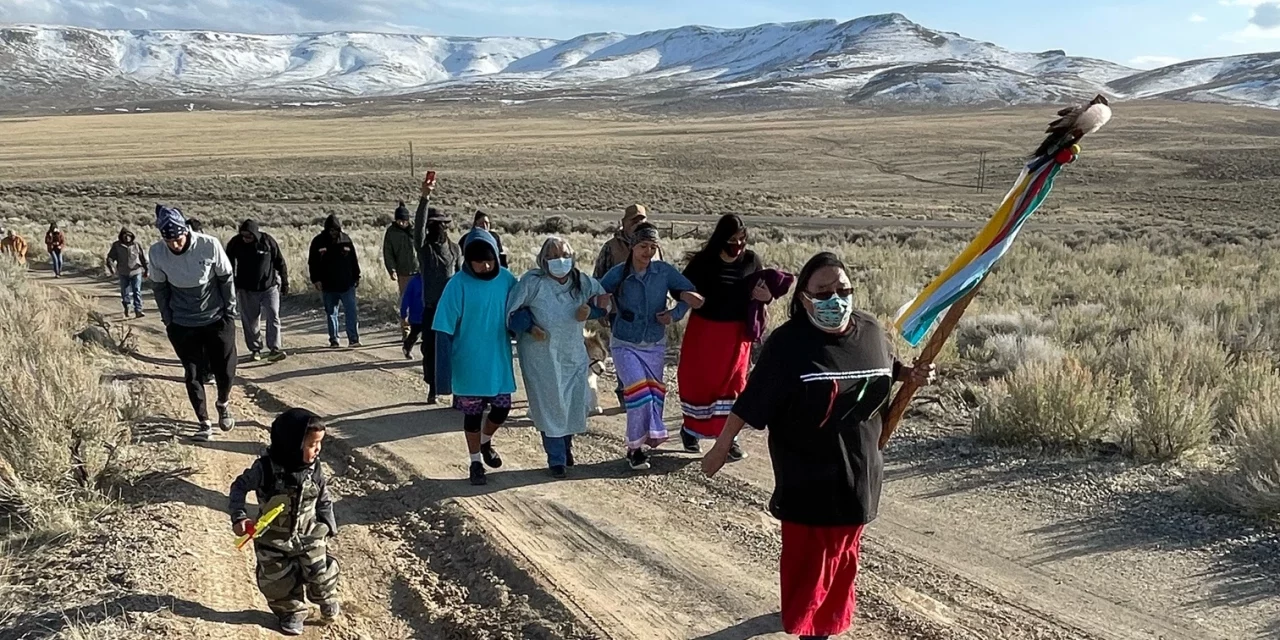On August 9, 2022, the International Day of the World’s Indigenous Peoples, Indigenous leaders will launch a new site – www.sirgecoalition.org – as part of the official public announcement of a new coalition to Secure Indigenous People’s Rights in a Green Economy (SIRGE Coalition).
The minerals necessary for renewable energy, such as nickel, lithium, cobalt, and copper, are critical to developing a green, low-carbon economy. As demand for these transition minerals is skyrocketing, increased mining threatens Indigenous rights and territories where there is no comprehensive assessment of risks and harms to Indigenous Peoples and complete participation of those impacted. To solve the growing climate emergency, a true Just Transition to a low carbon economy requires governments and companies involved in the new green economy to observe and implement the rights of Indigenous Peoples enshrined in the United Nations Declaration on the Rights of Indigenous Peoples, including the right to Free, Prior and Informed Consent.
Cultural Survival, First Peoples Worldwide, Batani Foundation, Earthworks, and the Society for Threatened Peoples have launched the SIRGE Coalition as a platform to champion a Just Transition to a low-carbon economy. SIRGE Coalition calls upon government, corporate, and financial decision-makers to avoid the mistakes and harms of past resource development by protecting the rights and self-determination of Indigenous Peoples around the globe, many of whom live on lands rich in transition minerals.
A few of many examples of Indigenous Peoples currently experiencing harm and threats from unconsented development of transition minerals include:
- Peehee Mu’huh, or Thacker Pass, sits at the southern edge of the McDermitt Caldera in Humboldt County, Nevada. Lithium Americas is attempting to develop a lithium mine on these lands sacred to Shoshone and Paiute Peoples.
- In Guatemala, members of the Indigenous Q’eqchi community peacefully blockaded the Fenix Nickel Mine to protest the lack of consultations and Free, Prior, and Informed Consent for the mine, which has polluted their traditional fishing grounds in Lake Izabal.
- In Russia, Indigenous communities on the Taimyr Peninsula suffered food insecurity after a fuel spill in 2020 from a subsidiary of Nornickel – a mining firm that supplies some 20 percent of the world’s Class I nickel needed for electric vehicle batteries – polluted local waterways. Despite pressure from companies in the supply chain, Nornickel has failed to respond to requests from Indigenous communities for adequate compensation and restoration of the fragile Arctic environment.
Indigenous territories contain significant concentrations of untapped heavy metal reserves around the world. In the United States, a study by MSCI estimated that 97 percent of nickel, 89 percent of copper, 79 percent of lithium, and 68 percent of cobalt reserves and resources are located within 35 miles of Native American reservations. A 2020 study found that mining potentially influences 50 million square kilometers of Earth’s land surface, with 8 percent coinciding with Protected Areas, 7 percent with Key Biodiversity Areas, and 16 percent with Remaining Wilderness.

















